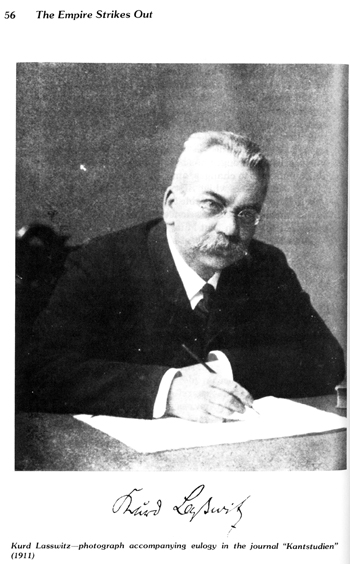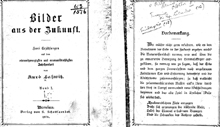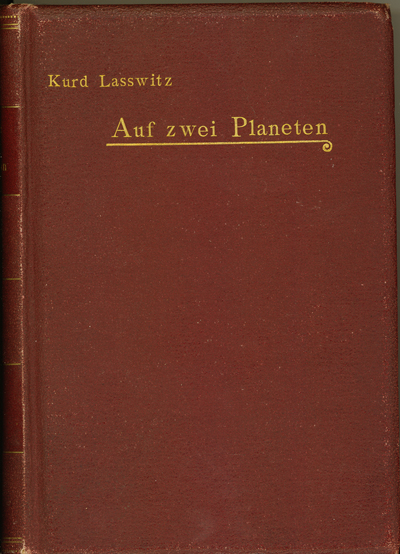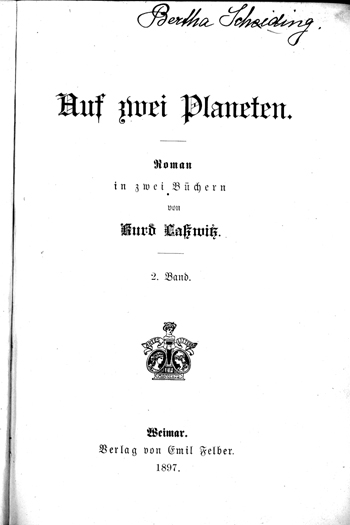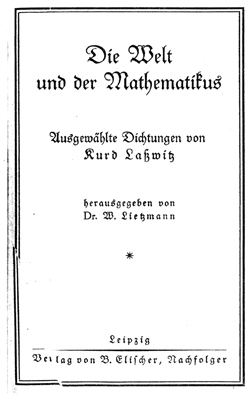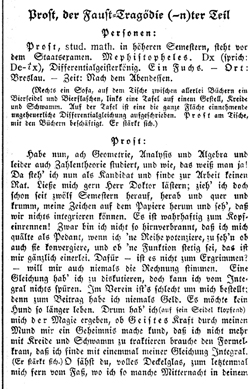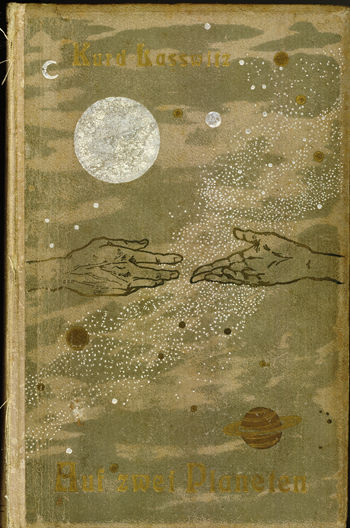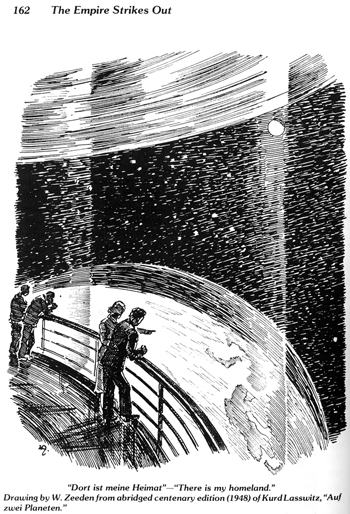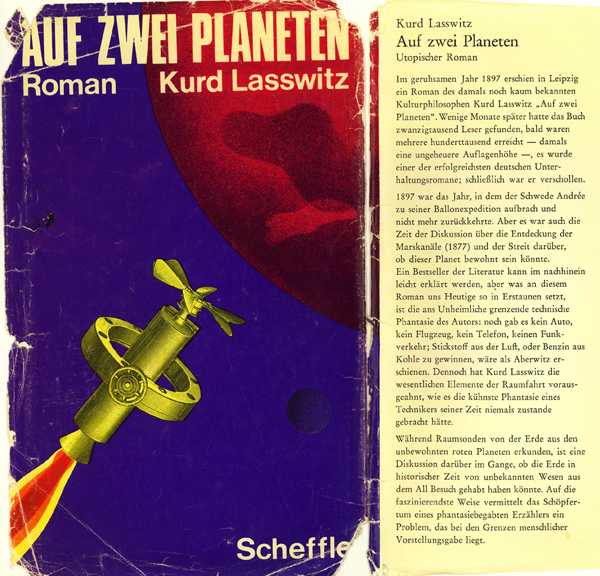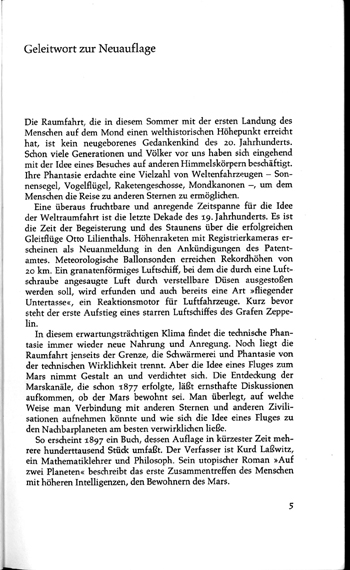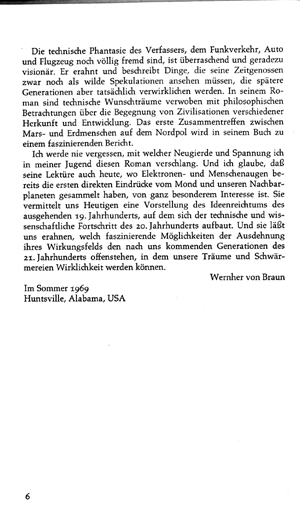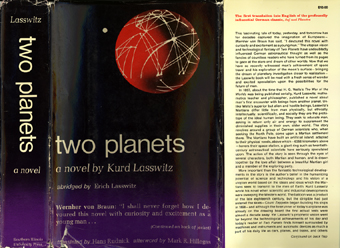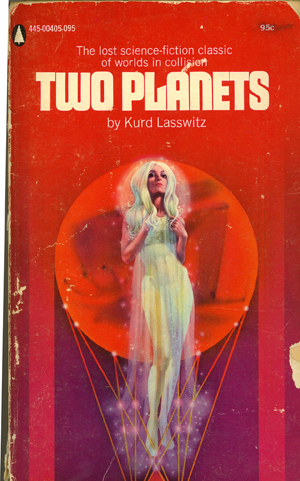Undeniably the father and foremost figure of German SF
Early stories of the future
Let's use the start of this story as an example of the "classic" SF prose style (click on the title page and then the text page right below).
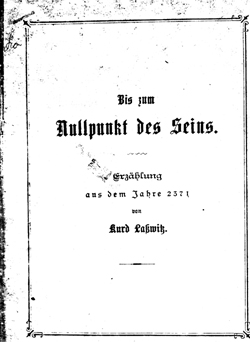 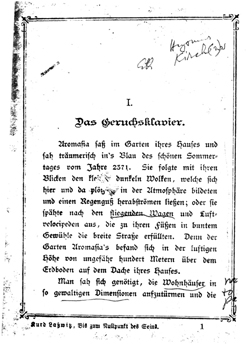
Major novel: Auf zwei Planeten (1897, same year as Wells's War of the Worlds) - humanlike Martians travel to Earth to impose benevolent Enlightenment, then turn to abusers; Ell, the German-Martian astronomer, heroically resists them and dies in an attempt at mediation.
Essays that attempt to define the "naturwissenschaftliche Märchen" / "Erzählung"
And some amusing miscellaneous works, such as a parody of "Faust"
Laßwitz' works continued to appear after his death in 1910, and were modestly praised both as futuristic fiction and for their progressive ideology. "Auf zwei Planeten" remained in print for decades:
But after 1933 his works suppressed as "democratic". There was a modest revival of his work after 1945, including new editions of "Auf zwei Planeten", starting in 1948. The "Space Race" resulted in recruitment of Wernher von Braun, who had read Laßwitz in his youth, to provide a foreword to a new German edition.
The "Kurd-Laßwitz-Preis" is awarded each year to the best new work of German SF.
And "Auf zwei Planeten" has appeared in English, in both hardcover and paperback, including the von Braun testimonial:
Laßwitz taught math at a Gymnasium in Breslau. Among his students was none other than Hans Dominik, the other big name in "classical" German SF - and not nearly so positive a fi |
